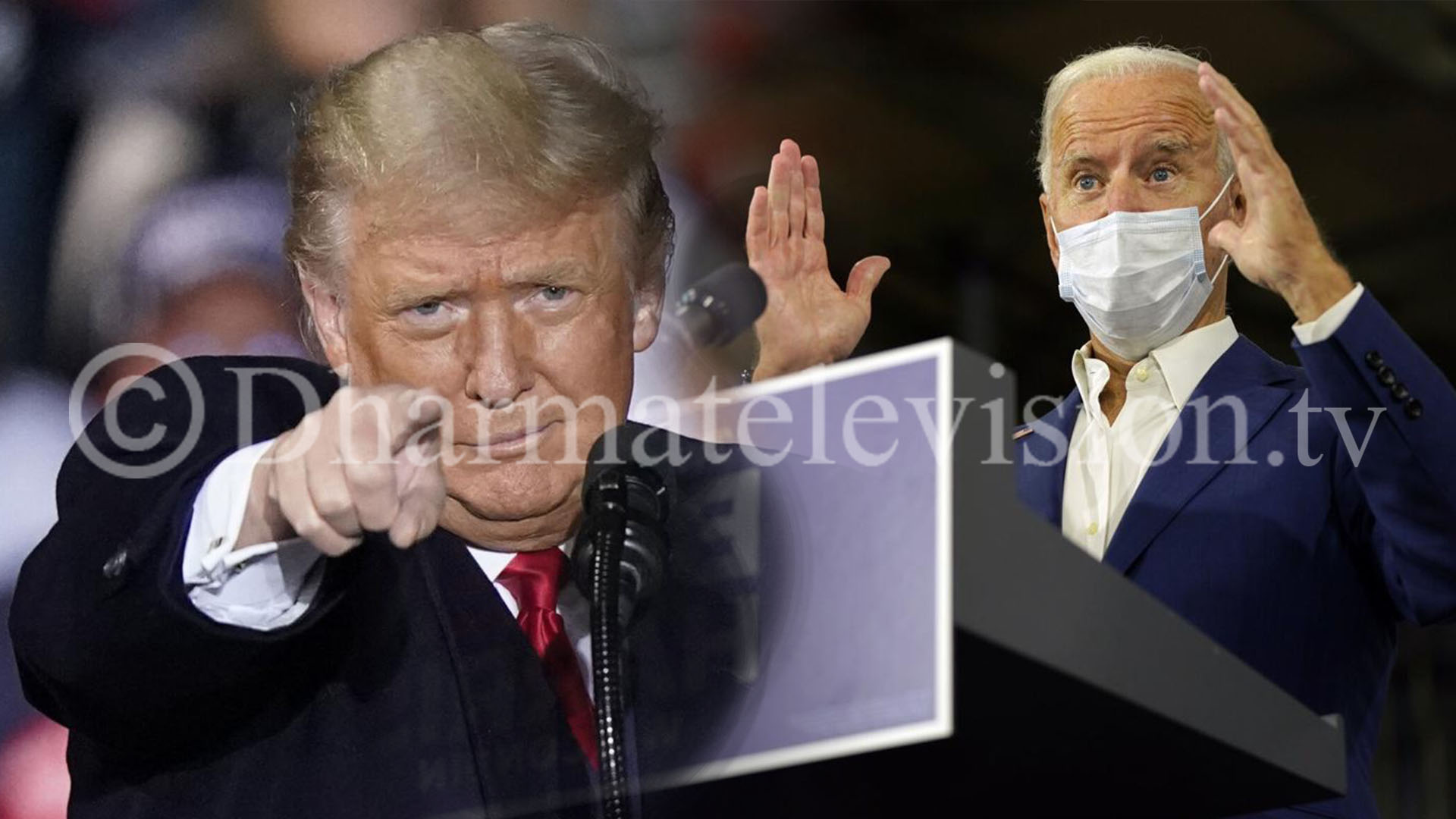3 years ago

On November 3, Americans across 50 states and the District of Columbia will vote for their 46th president.
Meet the candidates
Republican: Donald Trump
Born: June 14, 1946. The current president of the United States ran a real estate firm, was a star of a reality TV show
Vice presidential candidate: Mike Pence is the current vice president of the United States. Pence served as the governor of Indiana and had six terms in US House of Representatives.
Democratic: Joe Biden
Born: November 20, 1942. He was the vice president from 2009-2017 in former president Barack Obama’s terms Elected to the US Senate from Delaware at age 29, has been re-elected six times since 1972
Vice-presidential candidate: Kamala Harris. She is the former attorney general of California and was the junior senator from California at the US Senate for two terms.
Here’s how America votes
The process

The Constitution of the United States of America mandates that the president be elected by an electoral college currently comprising 538 members or electors.
Electors are nominated by the state’s party committees; the number is determined by the strength of a state’s House of Representatives and Senates. The electors usually follow a winner-takes-all system, voting for whichever candidate has won the popular vote in their state.
Does popular vote count?
The presidential candidate who wins the popular vote in the state picks up all the state’s electors except in Maine and Nebraska, which allow their electoral vote to be split.
The candidate with 270 or more electoral votes wins. Winning the popular vote nationally is not enough — Hillary Clinton won the popular vote by 3 million in 2016, but Donald Trump got more electoral votes.
Thanks to the Covid-19 pandemic...
More than a third of all eligible voters (including President Trump) have already cast their ballot in person, and via mail in a record-setting early voting turnout.
Besides presidential elections...
Americans will also vote to elect 435 members of the House of Representatives, 33 members of the senate (a third of the 100 seats of the upper chamber are up for election every election cycle), 11 state governors (and two of US Territories), and members of 86 state legislative chambers (lower and upper chambers) on November 3.
Cost of the election
The 2020 elections to the White House, House of Representatives are expected to cost an estimated $14 billion — a record.
This includes money spent by candidates, parties and outside bodies and does not include expenses incurred by state governments. Joe Biden could become the first presidential nominee to raise $1 billion, or more.
Results
They may take longer to be announced this time because of the sheer volume of mailed-in ballots. Some states will begin counting their mail-in ballot before election day, some will start on election day, some will wait till the close of polling.
The main issues this election
Covid-19
Biden has made the Trump administration’s response to the epidemic the centre of his campaign. He tweeted: ‘I believe in Science. Donald Trump doesn’t. It’s that simple.’
Economy
The devastating impact of the Covid-19 pandemic includes widespread closure and downsizing of businesses. An estimated 22 million jobs were lost between Feb and April.
National security
In a Gallup poll, alleged interference by China, Russia and Iran in the 2016 presidential elections, through the spread of disinformation online emerged as a concern.
Health care
Republicans want to repeal and replace the Affordable Care Act enacted by former President Barack Obama. The Supreme Court is expected to hear a case soon after the elections.
Immigration
The flashpoint in Trump’s term has been his policy towards undocumented immigrants, and the wall that he built along the border to Mexico in an attempt to keep them out.
Race
The shooting of unarmed Black civilians by policemen across states led to several Black Lives Matter protests across states. Trump likely raised tensions referring to the protestors as ‘thugs’